
The Government has submitted to the 9th Session of the 15th National Assembly a law amending many laws in the fields of investment, finance, and budget, including the Investment Law - Photo: Prime Minister Pham Minh Chinh chaired the Government's special meeting on law-making in May 2025.
With the spirit of "dare to think, dare to do, dare to innovate, dare to break through for the common good" that the Party and State call for, is it time for us to courageously look back: is the Investment Law still necessary, or at least need to fundamentally amend this law?
Prime Minister Pham Minh Chinh affirmed his determination to fundamentally remove institutional bottlenecks in 2025. He also outlined important directions in state management: Management agencies will develop standards, regulations, and other necessary conditions and then publicly announce them so that people and businesses can simply implement planning, regulations, standards, and conditions, and do what the law does not prohibit; and instead of pre-inspection and licensing, the government will strengthen post-inspection, inspection, and supervision.
Currently, the Government has submitted to the 9th Session of the 15th National Assembly a law amending many laws in the fields of investment, finance, and budget, including the Investment Law.
A "complex" and conflicting law
In name, the Investment Law aims to create a legal corridor to encourage investment. But in reality, due to many different reasons, most likely due to legal thinking, approaches and policy designs that are not suitable for practice, it is intervening too deeply in dozens of areas that already have their own specialized laws - from the Land Law (2024), Construction Law (2014, revised 2020), Electricity Law (2004), Environmental Protection Law (2020) to the Road Traffic Law, Tourism Law... This overlapping intervention leads to common legal conflicts.
A typical example is: according to the Investment Law, investment projects to build industrial parks need to be approved in principle by the Provincial People's Committee. But according to the Construction Law, construction permits must be based on approved planning and designs. Meanwhile, according to the Law on Environmental Protection In order to prepare an environmental impact assessment report, investors need information from detailed planning - something that is not available if the investment policy has not been approved. This cycle makes the process last for years and can create a mechanism of asking and giving to shorten the time.
The same situation applies to renewable energy projects. While the Electricity Law and sectoral plans allow the implementation of solar power projects, according to the Investment Law, localities must still seek approval from the Ministry of Planning and Investment (now the Ministry of Finance) if the capacity exceeds 50 MW – delaying dozens of projects, especially in the Central and Central Highlands regions in the 2020–2022 period.
Not stopping there, the list of conditional business lines (issued under Appendix IV of the Investment Law) still maintains more than 200 business lines, including many notable fields such as: study abroad consulting services, disability assessment services - fields that have been completely liberalized in many countries. In addition, some activities in the logistics sector, such as international multimodal transport services, are also subject to conditional business. This arbitrary listing has legalized the administrative control mechanism for industries that do not really need control, creating opportunities for harassment and hindering competition.
As a result, both investors and regulators are in a state of "legal ambiguity": not knowing which law to follow.
Meanwhile, the concept of "investment project" in the current law is being understood too broadly. An investor only needs to prepare a proposal, without capital or capacity commitment, and can access public land. This paves the way for "empty-handed land acquisition", profiteering speculation and distorting the real estate market.
The investment incentive mechanism is also not designed to be automatic and transparent. Whether or not there is an incentive depends largely on the approval of the competent authority.
In a modern market economy, investment is a right, not a privilege. Entrepreneurs should not have to “beg for investment” – they should simply obey the law and compete fairly.
As long as investment freedom is constrained by invisible layers of red tape, the capital flows needed for growth – especially in a context of limited national resources – will continue to be blocked.
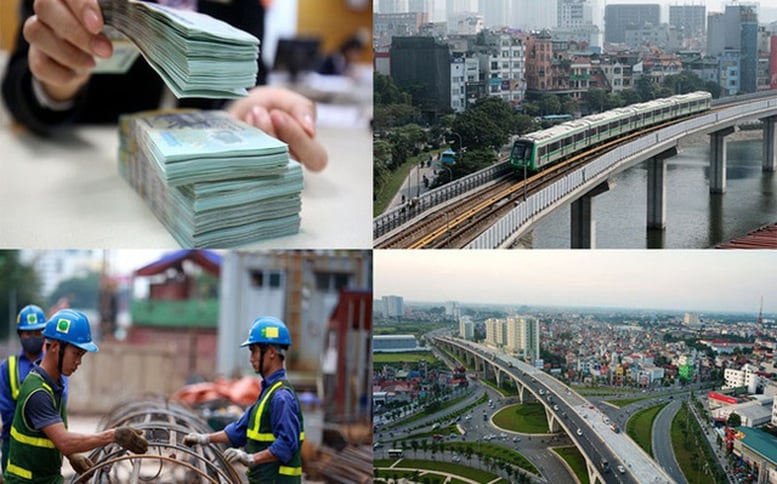
All investment incentive policies – from taxes, land to infrastructure – must be specifically codified in law.
The world doesn't need an Investment Law – because their laws are clear enough
In developed countries like the United States, Japan, Korea, Germany or the United Kingdom, there is no comprehensive investment law. Investors only need to comply with the law – they do not need to "apply for investment".
Investment incentives – if any – are provided for in tax laws, land laws or innovation policies. What is not prohibited is allowed – this principle is not just theoretical but has been codified and effectively enforced.
Along with the immediate amendment, abolishing the Investment Law as a separate law should be considered as a serious and strategic option.
To replace it, Vietnam needs a new institutional framework with the following core principles:
1. Restore clarity and coherence to the specialized legal system : The Land Law, Enterprise Law, Tax Law, Construction Law and other specialized laws must be restructured towards transparency, stability and consistency - so that investors only need to comply with the law without having to "ask" anyone. The law must be a reliable map.
2. All investment incentive policies – from taxes, land to infrastructure – must be specifically legalized, have clear conditions and be applied transparently, consistently and uniformly. No one has to knock on doors to ask for what the law stipulates.
3. Shift from pre-audit to post-audit – the foundation of a trustworthy and accountable institution : When investors fully comply with legal regulations, let them implement projects immediately without being blocked by formal administrative procedures. The focus of state management must shift to effective post-audit, ensuring fairness and preventing real risks, instead of formal control from the beginning.
4. Establish a streamlined and targeted screening mechanism, limited to particularly sensitive sectors : Sectors related to national security, dual-use technology, strategic infrastructure – can and should be strictly controlled. But most other sectors should be fully open, as the US, EU, Australia and many other dynamic economies are applying.
Resolution No. 66/NQ-CP (March 26, 2025) of the Government sets the following goals: Abolish at least 30% of unnecessary business conditions; Reduce at least 30% of administrative procedure processing time; Cut 30% of administrative procedure compliance costs for businesses.
If the Investment Law is abolished, according to preliminary estimates, the effects will be as follows: Reducing 15–20% of project implementation time by eliminating investment policy procedures; reducing 5–7% of sub-license procedures by streamlining the list of conditional business lines; reducing 5–10% of administrative burden for foreign investors by consolidating investment and business registration processes.
In total, the abolition of the Investment Law could help achieve 20–25% of the administrative procedure reduction target – nearly completing the reform goal of Resolution 66/NQ-CP.

In a modern rule of law, investment does not need to be "permitted" by a separate law, but only by a clear, transparent and unified legal system.
Without the Investment Law, how will the project start?
A common concern is: if the Investment Law is abolished, how will investors – especially foreign investors – start their projects? In fact, in a modern legal system, investment does not need to be “permitted” by a separate law, but only needs a clear, transparent and unified legal system.
For domestic investors, the investment process will become simpler: just need to establish a business according to the Enterprise Law, carry out specialized procedures such as land lease, construction permit, environmental impact assessment... depending on the nature of the project. There will be no more cumbersome "investment policy" or "investment certificate" procedures like today .
For foreign investors, Vietnam can apply a selective screening model like many developed countries are doing: only projects in sensitive areas (defense, personal data, strategic infrastructure, etc.) need to be examined. The remaining investors can access the market like domestic enterprises, through business establishment procedures and implementation according to specialized laws.
Investment incentives will be integrated into tax, land, and innovation laws, and automatically applied if eligible, instead of having to be applied for as is currently the case.
In short, abolishing the Investment Law does not mean loosening management, but rather shifting to post-audit management, with a complete, unified and transparent legal basis - in line with the standards of a modern market economy.
How to deal with prohibited and conditional industries if the Investment Law is abolished?
The question is: without the Investment Law, who will regulate which industries are prohibited or subject to conditions? The answer is clear: it can be handled neatly within the current legal system.
The list of prohibited business sectors can be integrated into the Enterprise Law, as part of the limitation of business freedom – in line with the function of the framework law.
Conditional business sectors will be handled in three directions: Sectors that really need to be controlled (such as petroleum, security, finance, etc.) will be clearly defined in specialized laws; sectors that are no longer reasonable (such as study abroad consulting, disability assessment, etc.) will be removed from the list. list; if a general statistical list is needed, it can be issued together with the Enterprise Law or in the form of a resolution of the National Assembly. association, but with a more streamlined and transparent scope than today.
Management has shifted from a "pre-approval" mechanism to smart post-inspection by specialized inspectors. This is a model that many countries have successfully applied - ensuring public order, encouraging innovation and reducing the cost burden for businesses.
Removing barriers to pave the way for a confident Vietnam to rise up
Vietnam is facing a development aspiration: to become a high-income country by 2045. But that aspiration cannot be based on an institution that still clings to the mindset of asking and giving. We need reforms to establish a transparent, competitive and trustworthy legal environment – where every decent investor has the opportunity to develop and get rich.
Resolution No. 66-NQ/TW dated April 30, 2025 of the Politburo has clearly identified the elimination of the "ask-give" mechanism as one of the focuses of institutional reform to promote national development in the new era. A strong nation is one that can arouse and liberate all the resources that are tied up in every piece of land, sky, seaport and in the hands and minds of every person.
Dr. Nguyen Si Dung
Source: https://baochinhphu.vn/dung-cam-cat-bo-diem-nghen-trong-luat-dau-tu-102250524064556898.htm












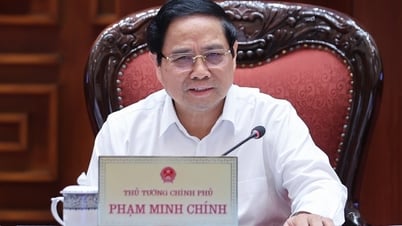









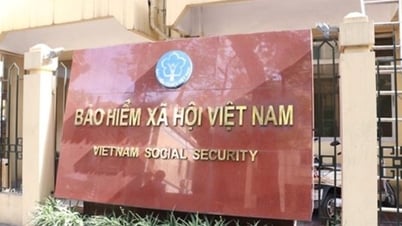































![[VIDEO] Petrovietnam – 50 Years of Keeping the Heritage Torch, Building National Energy](https://vphoto.vietnam.vn/thumb/402x226/vietnam/resource/IMAGE/2025/9/3/3f5df73a4d394f2484f016fda7725e10)

![[Photo] President Luong Cuong meets with Russian President Vladimir Putin](https://vphoto.vietnam.vn/thumb/402x226/vietnam/resource/IMAGE/2025/9/3/87982dff3a724aa880eeca77d17eff7f)



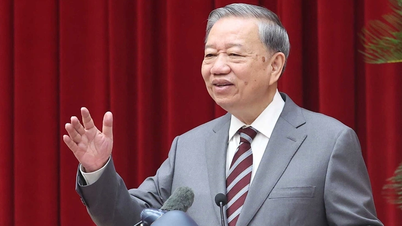







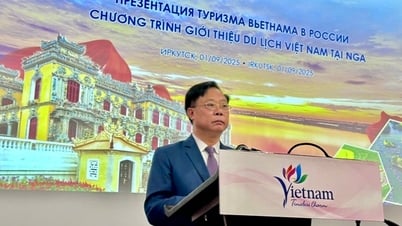











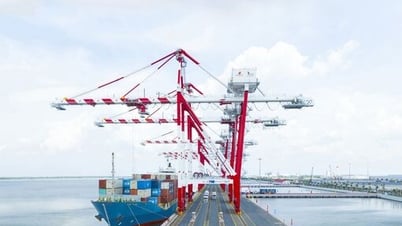














Comment (0)